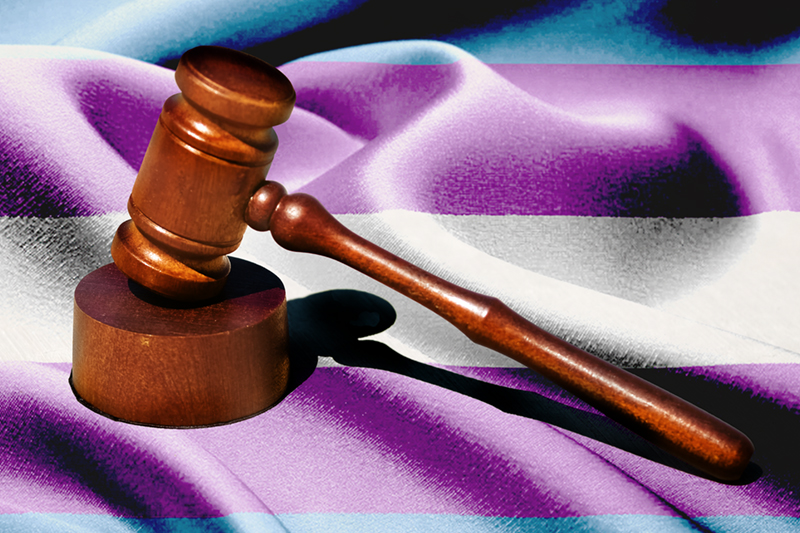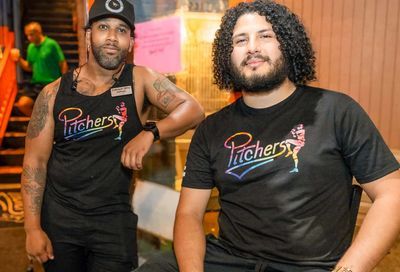Global survey shows growing generational difference in gender identity and sexuality
Gen Z is significantly more likely to identify as something other than heterosexual or cisgender

Younger people are significantly more likely to identify as something other than heterosexual and four times as likely to identify as transgender, non-binary, or genderfluid, according to a new survey.
The Ipsos’s LGBT+ Pride 2021 Survey, conducted by Ipsos’ Global Advisor online platform, found immense generational gaps in gender identity and sexual orientation between Gen Z individuals (born after 1997) and adults overall.
The survey collected data from 19,000 individuals between the ages of 16 to 74, with respondents from 27 countries including the U.S., Canada, France, China, Germany, Japan, Brazil, Russia, and the United Kingdom.
An average of 4% of Gen Z individuals across all 27 countries identify their gender as something other than male or female, in comparison to only 1% of all adults.
Almost 10% of Gen Z individuals identify as bisexual, with 4% identifying as gay or lesbian, and 2% as pansexual.
The poll also demonstrated large variations between countries in terms of exposure to LGBTQ people.
In the U.S., 57% of respondents report having a friend, relative, or co-worker who is gay or lesbian, 30% know someone who is bisexual, 14% know someone who is transgender, and 14% know someone who is non-binary, non-confirming or gender-fluid.
That compares with 66% of people in Brazil, versus only 7% of respondents in Japan and South Korea.
In general, a majority of countries polled support LGBTQ nondiscrimination laws, marriage equality, and adoption rights for the LGBTQ community.
In the U.S., 72% think same-sex couples should have the right to marriage or some sort of legal recognition, while 15% argue they should not be entitled to legal recognition. The same percentage of respondents (72%) agree that same-sex couples should have the same rights to adoption as heterosexual couples, while 22% disagree.
Related: Most Republicans now support same-sex marriage, six years after Supreme Court ruling
Finally, 60% of respondents express support for laws banning discrimination against LGBTQ people in regards to employment, education, housing, and social services (21% are in opposition).
However, the numbers vary wildly depending on the country polled. In the Netherlands, the vast majority (84%) of respondents support same-sex marriage, compared with a plurality (40%) in Japan, where 29% support some legal recognition for same-sex couples, but not marriage.
Russia and Malaysia ranked bottom in terms of support, with only 17% of Russians supporting same-sex marriage, 12% supporting some legal recognition, and 52% opposing any recognition of unions or marriage. Those numbers drop to 8% support for marriage or some legal recognition in Malaysia, with 65% opposing any recognition.
Although corporate activism promoting equality remains a controversial subject, the survey found that both domestically (48% support vs. 20% opposition) and globally (47% support vs. 20% opposition) respondents approve of it.
One of the most controversial topics for respondents was the question of whether transgender athletes should be allowed to compete in sports according to their gender identity.
The global average for support stood at 32%, while another 32% oppose it, and 36% remain neutral. In the U.S., 27% support it and 45% oppose it, while 28% are neutral.
Opinion on the matter was split along party lines in the U.S., with Democrats mostly in support (42% vs. 24%), and Republicans overwhelmingly opposing it (75% vs. 11%).
Read More:
Caitlyn Jenner claims it’s easier to come out as trans than as a Republican
Supreme Court sides with Catholic adoption agency refusing to place children with same-sex couples
U.S. Department of Education confirms transgender students protected by Title IX
Support Metro Weekly’s Journalism
These are challenging times for news organizations. And yet it’s crucial we stay active and provide vital resources and information to both our local readers and the world. So won’t you please take a moment and consider supporting Metro Weekly with a membership? For as little as $5 a month, you can help ensure Metro Weekly magazine and MetroWeekly.com remain free, viable resources as we provide the best, most diverse, culturally-resonant LGBTQ coverage in both the D.C. region and around the world. Memberships come with exclusive perks and discounts, your own personal digital delivery of each week’s magazine (and an archive), access to our Member's Lounge when it launches this fall, and exclusive members-only items like Metro Weekly Membership Mugs and Tote Bags! Check out all our membership levels here and please join us today!

























You must be logged in to post a comment.